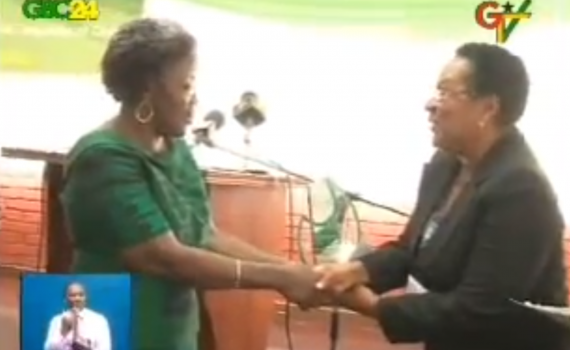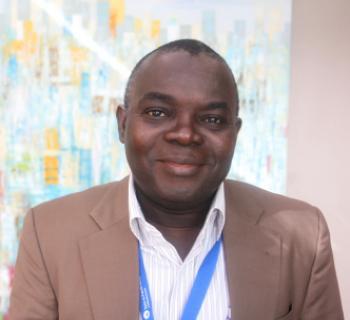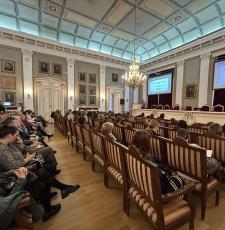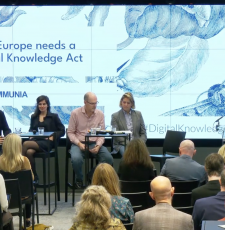
EIFL-partner library consortia in three countries – Ghana, Kenya, Zambia commemorated their 10th anniversary in 2014.
“For me KLISC (the Kenyan Library and Information Consortium) is a dream come true,” remembers Jacinta Were, the former EIFL Country Coordinator for Kenya. “It was a difficult time with dramatic financial cuts to libraries and zero level budgets for journals. And then we collectively subscribed to information resources, and it worked!”
The startup was thorny, and there were many common challenges to building effective consortia all these years ago. Some of the issues back then included recruitment and retention of active members, establishing good governance, developing the ICT competencies of librarians and ensuring the continued availability of e-resources and good connectivity.

Equally important was developing fruitful relationships with stakeholders: advocating for adequate library budgets, building the digital skills of users, raising awareness of the importance of open access and copyright amongst decision makers and academia.
Over the past ten years there have also been many major accomplishments.
“Our major accomplishment in ten years was the acquisition of land to build consortium offices, conference facilities and a hostel,” explains Dr. Joel Sam, EIFL Country Coordinator for Ghana, at the First International Conference to celebrate the 10th anniversary of CARLIGH, the Consortium of Academic and Research Libraries in Ghana.
According to Sam, creating this base for financial sustainability was made possible by the wise investment of internally generated funds over the years.
Eness Chitumbo, the Zambia Country Coordinator, focuses on another, equally important area for the sustainability of ZALICO, the Zambian Library and Information Consortium:
“The consortium has formulated a two-year strategic plan to run from 2012-2014. Its vision is to provide a leading platform for information sharing in Zambia and world over,” says Chitumbo.

“Strategic areas include consortium expansion, promotion of the use of free and open source software, e-resources and open access. This means that the work of the consortium is planned way in advance, and people work towards achieving set goals and objectives.”
Through effective advocacy and promotion, all three consortia have experienced substantial growth in the number of active member libraries and e-resource’ subscriptions.
These last ten years have also seen the creation of an impressive range of (opendoar.org/countrylist.php) open access repositories, making indigenous research output visible to the world. The consortia have enhanced the visibility of libraries through joint advocacy activities, and support professional advancement by providing a framework for knowledge sharing and capacity building.
There is no shortage of lessons’ learnt - important knowledge that the consortium coordinators shared willingly at the 2014 General Assembly in Istanbul: ‘Involve the stakeholders, find your champions, repackage and share information’ is recommended by KLISC; ‘target government officials and new higher learning institutions’ suggests ZALICO; ‘adopt openness and equality as principles for consortium governance’ is the advice of CARLIGH.
Dr. Helena Assamoah-Hassan, chairperson of AfLIA, the African Library and Information Association, former Ghana EIFL Country Coordinator and past member of the EIFL Advisory Board, sums it all up nicely looking back to the beginnings in 2004:
“From a humble beginning of six members in 2004 to a membership of over 30 now has been a lot of hard work,” she says.

“Some of us had to use our personal financial resources for initial services and a lot of our energies and time to see it grow healthily,” she continued.
“I remember when I combined the roles of Chairperson and Treasurer to have a firm grip on the financial strings. It has yielded fruit and now we have investments and at least one year reserve of funds for e-resources subscription,” she says.
“My greatest joy was when I handed over the consortium in March 2014 to the next chairperson and moved on to retirement. CARLIGH is a success story, and I am happy to have been very much involved on its road to success.”
SHARE / PRINT









